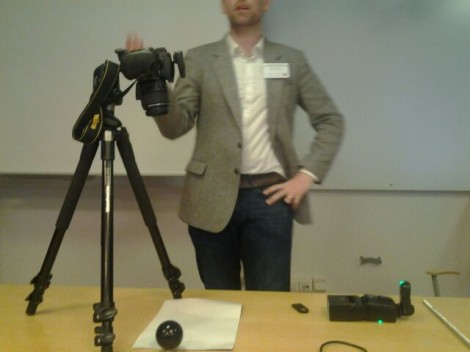RTI at the Urban Variation Conference, Gothenburg
Last week Gareth and I travelled to Gothenburg in Sweden to present at the Urban Variation conference. The conference website is here: http://conference.earlymoderntown.com/urban-variation/. The conference was organised by the Early Modern Town Project team (find the University of Gothenburg project website, here; http://www.earlymoderntown.com/) and was attended by a multidisciplinary crowd of academics and professionals.
We met people interested in a huge variety of approaches to the Early Modern town. Topics presented included: the architectural traditions of city development, the spreading of language across countries through urban environments, the use of surveying to better understand the make-up of the city, and the relationship between the structure of a city and economical and socio-cultural factors. There was much food for thought over the three days, particularly as we are planning an excavation at an Early Modern site ourselves this summer!
Our Presentation
We were at the conference to talk about the Re-imagining the British Memorial Project, an initiative to develop training methodologies for local history groups wishing to use new technologies to record church memorials. You can read more about the project here: http://ourti.org
The Technology Session
The conference organisers had placed our presentation in a day-long session that explored how technology could contribute to the study of the early modern town, and there were some fascinating talks covering other technologies. I won’t describe them all here, as there is going to be a publication available soon, but you can read through the abstracts here: http://conference.earlymoderntown.com/wp-content/uploads/2013/02/Abstracts.pdf
Presentations in the session included a project using a motion-sensing Microsoft Kinect alongside open source to create a reconstruction of a church interior, a description of the challenges faced by geophysical prospection in urban environments in Sweden, the use of RTI to record graffiti on Swedish churches with a view to creating a comprehensive database of transcriptions, and the use of Unity for exploring the historiography of the interpretation and records of an archaeological site through a 3D reconstruction.

Highlight RTI Workshop
In the afternoon, Gareth and I ran a workshop on using Highlight RTI to record details of structures in the urban environment. We showed examples of related RTIs and had a troubleshooting Q&A for those planning to use the technique for their own research.
Thank-you to the Early Modern Town Project
The trip was fantastic and we’d like to extend a huge thank-you to the Early Modern Town Project who made the visit possible.
Follow the Project
The Early Modern Town Project is planning to develop a communication network based on the initial conference, so do visit their website to keep up to date with further work: http://www.earlymoderntown.com/
